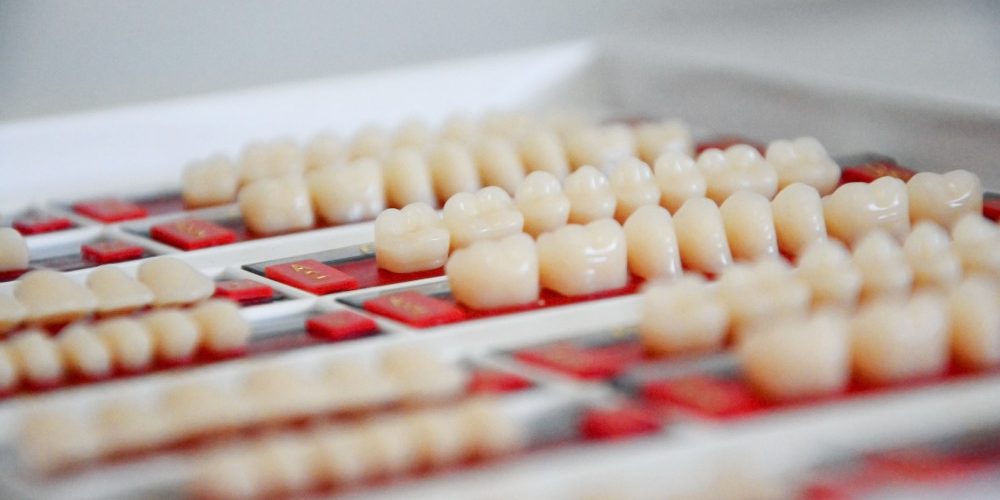A dental crown is a ‘tooth-shaped’ cap which is strategically placed over the tooth in order to resemble existing teeth within the mouth and look natural. This crown is cemented into position to ensure it completely covers the existing tooth above the gum line. They are used to deal with different issues including covering an existing implant, providing support for a bridge, protecting a broken tooth, and to safeguard the root canal process. Sounds impressive, doesn’t it? So, how much do crowns cost?
This isn’t a straightforward question to answer as there are so many different types of dental crowns that may be recommended to you based on the issue you are experiencing. Due to the myriad of different factors that dictate the cost of dental crowns it is difficult to give an exact price for a dental crown, however some dental crown price ranges have been provided:
- A resin crown will cost in the range of £300-£600.
- A gold dental crown will cost in the range of £600-£1000.
- A zirconia crown will cost in the range of £600-£900.
- A porcelain-fused-to-metal crown will cost in the range of £500-£900.
- An all-porcelain crown will cost in the range of £700-£1200.
Types of dental crowns
There are several different types of crowns that a dentists may recommend based on the issue you are experiencing. These types of crowns include:
- Stainless steel crown: These crowns are typically utilised as a temporary measure by dentists until a permanent crown is formed. They are sometimes used for baby teeth.
- Metal crown: These crowns are formed from alloys with a high content of either gold, platinum, titanium, or a combination of these.
- All-porcelain/ceramic crown: These crowns blend naturally with existing teeth and are subsequently widely used, especially for front teeth which are most visible.
- Porcelain-fused-to-metal crown: These dental crowns offer the aesthetic benefit of all-porcelain/ceramic crowns while also having the strength of metal crowns.
- Zirconia crown: These crowns are made of bio-compatible material, they are very strong and allow light to pass through. They come in numerous colours and blend well with natural teeth.
- Resin crown: These are the most inexpensive crowns. However, they are the most likely to break.
- Lithium disilicate crown: These crowns have increased in popularity in recent time, as they are highly aesthetically pleasing as well as being very durable. However, they are not as strong as zirconia.
Factors that affect dental crown costs
The cost of dental crowns depends upon several different parameters:
- Dental crown type: The type of crown chosen will dictate the price, with Zirconia and porcelain crowns having the highest cost, while a resin crown has the lowest cost.
- Technology used: Many crowns may be made with modern technology or require extensive hand crafting to meet specific requirements, subsequently the final cost will reflect this.
- Dental practice location: The location of the practice can greatly affect price, with practices located in major cities usually being more expensive than those in the countryside.
- Complexity of procedure: If the crown fitting procedure if particularly lengthy or complex then this will usually result in a higher overall cost.
- Amount of crowns needed: While multiple crowns will obviously cost more than a single crown, it is possible to get multi-buy discounts at certain practices.
We would be happy to chat through any further questions you have. 020 8629 1433.

